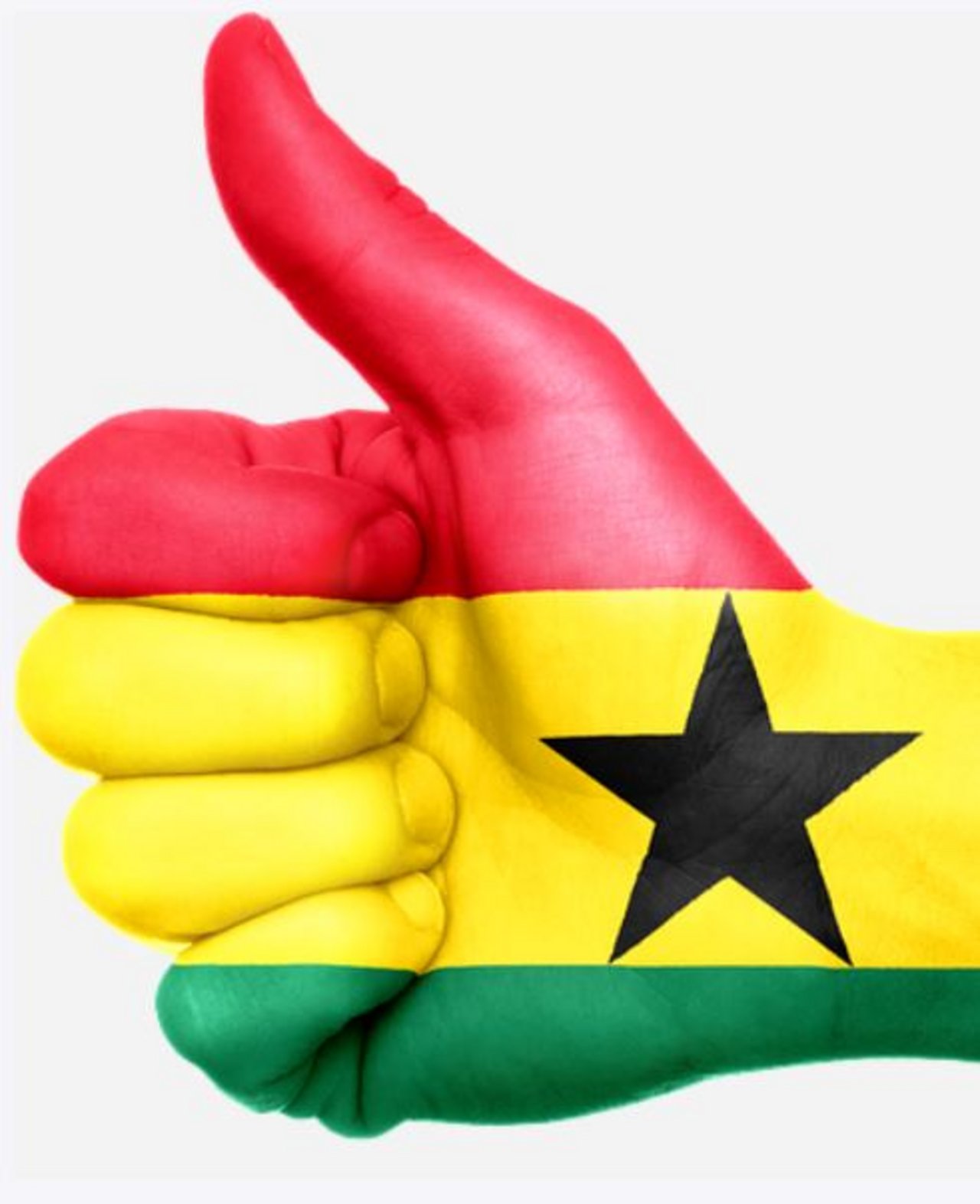
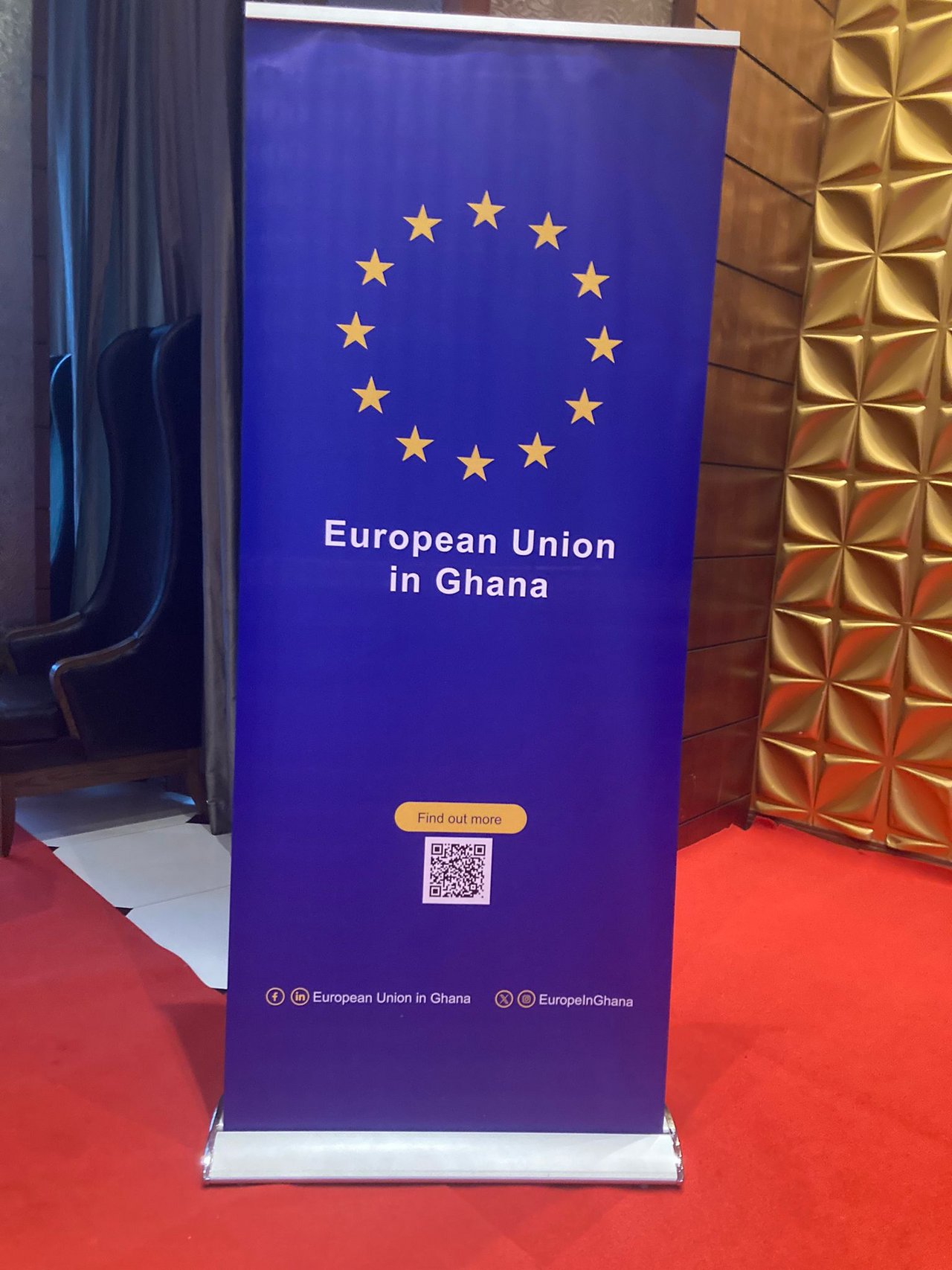
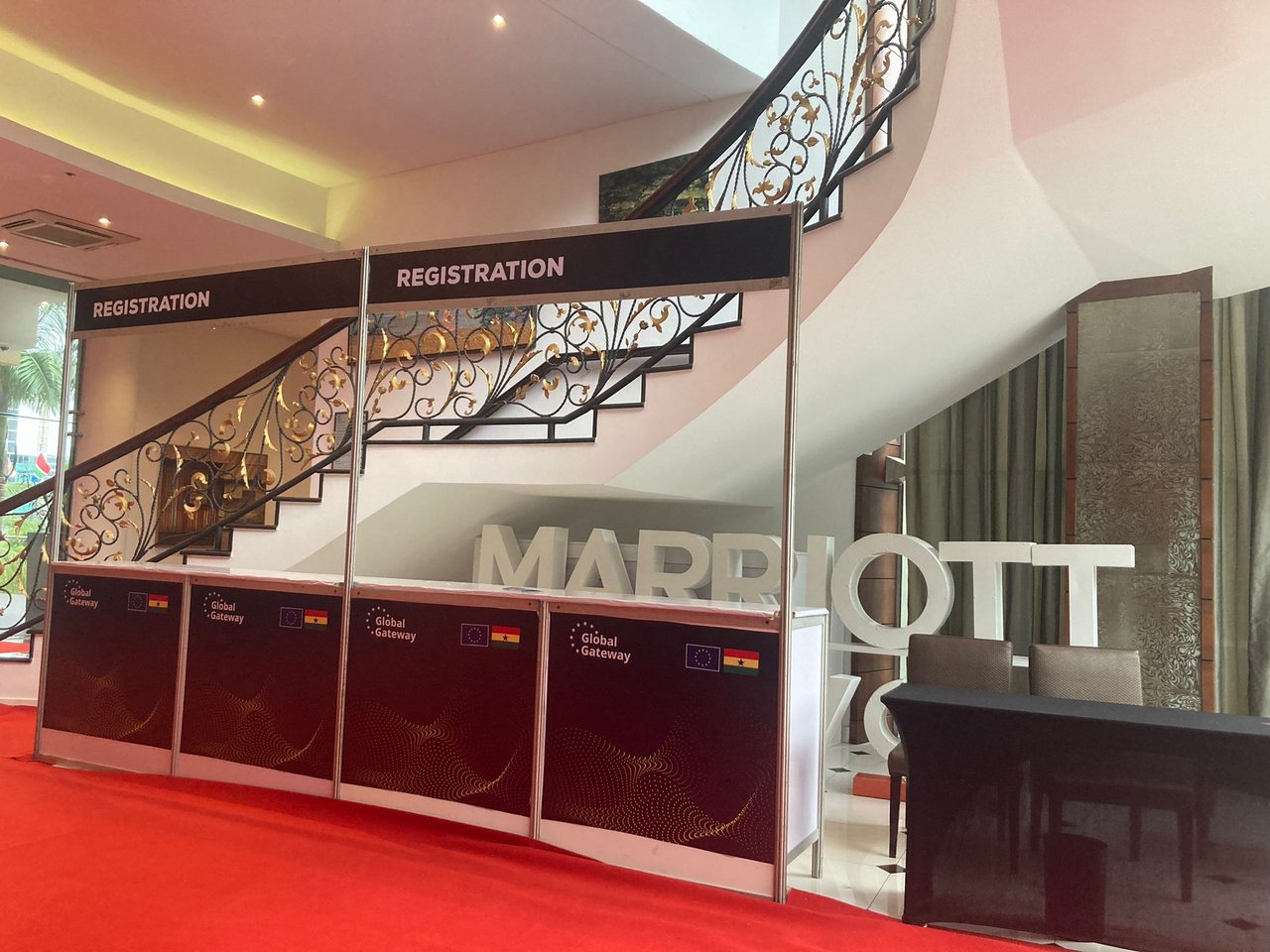
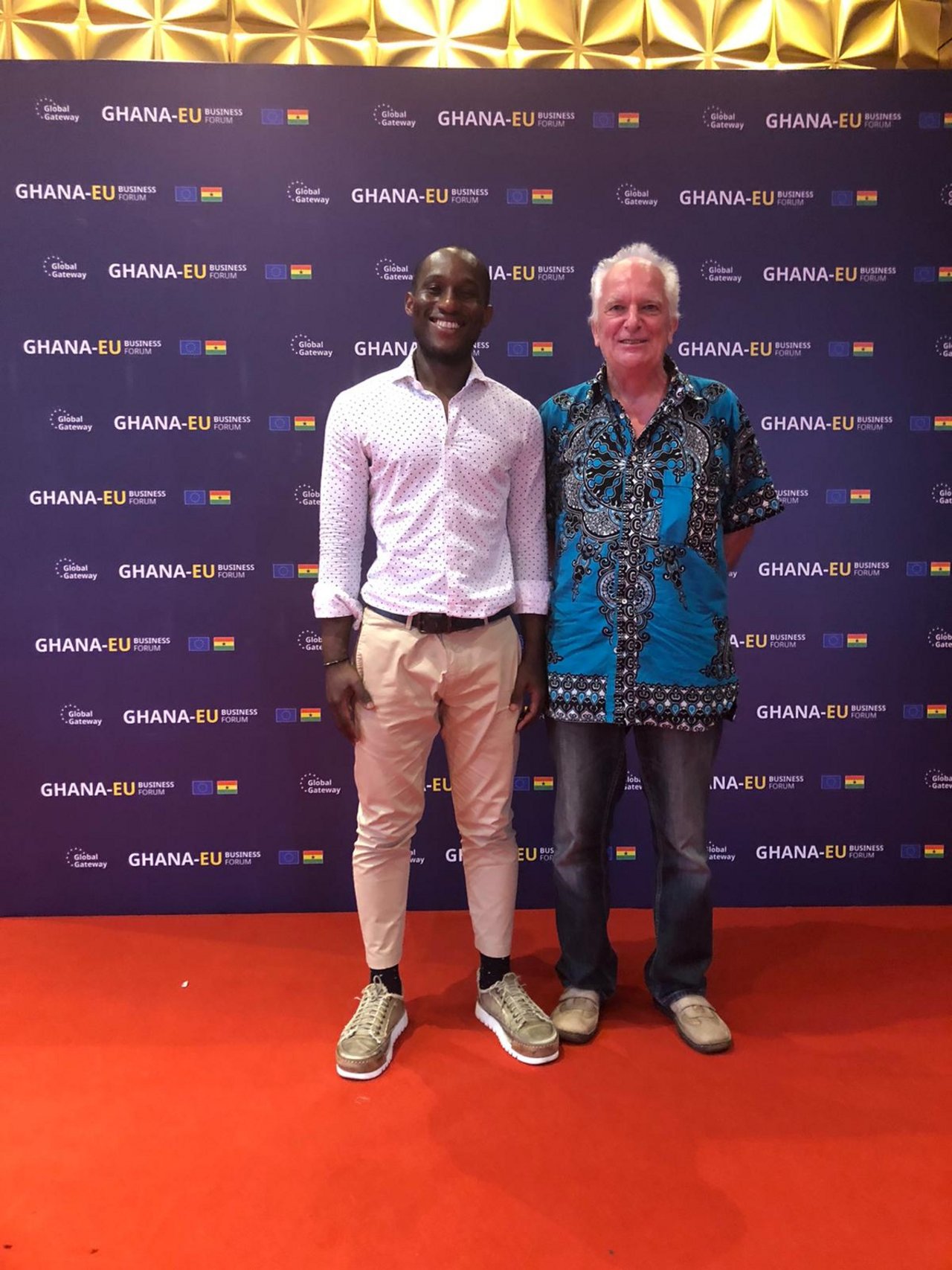
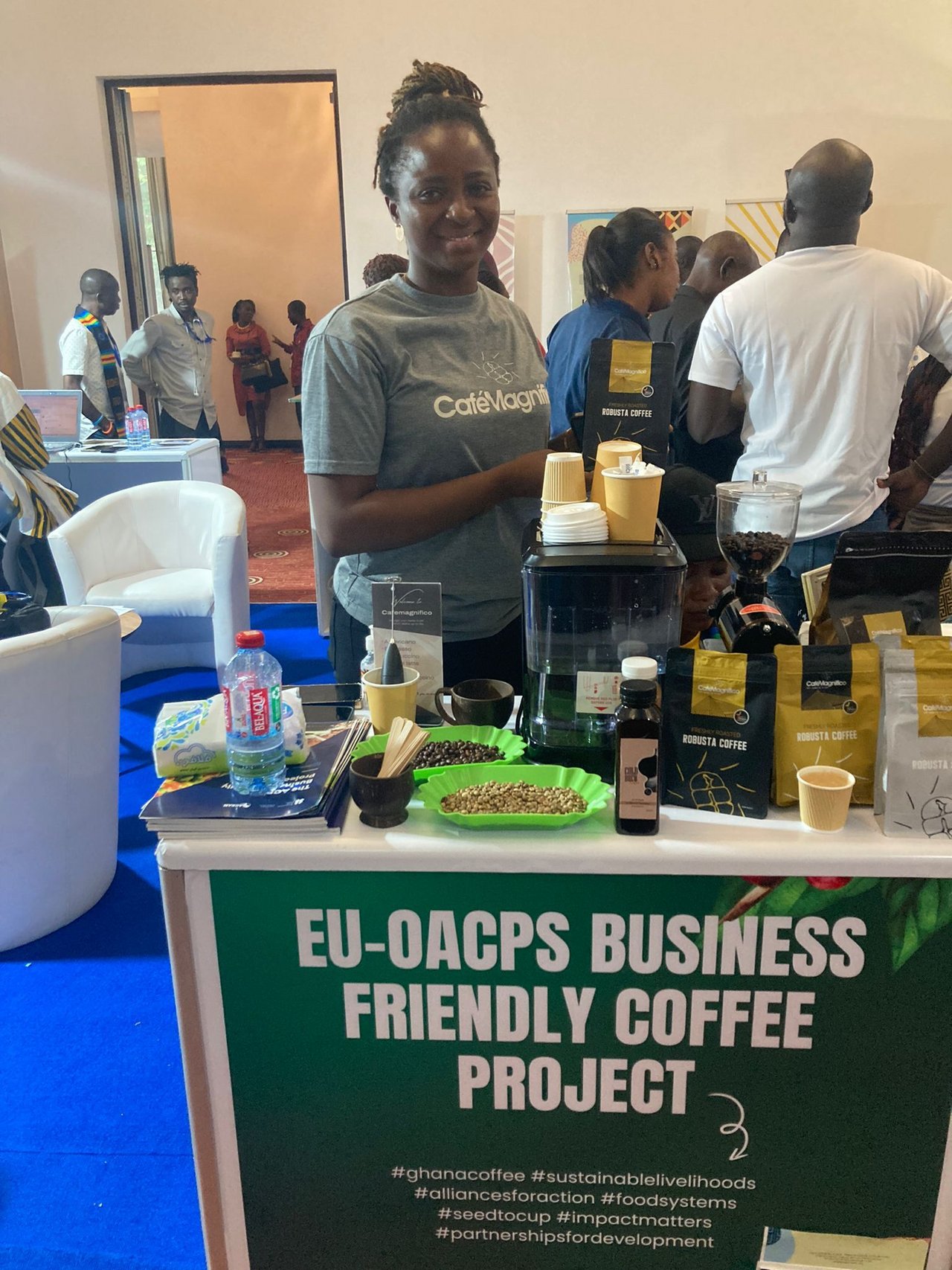
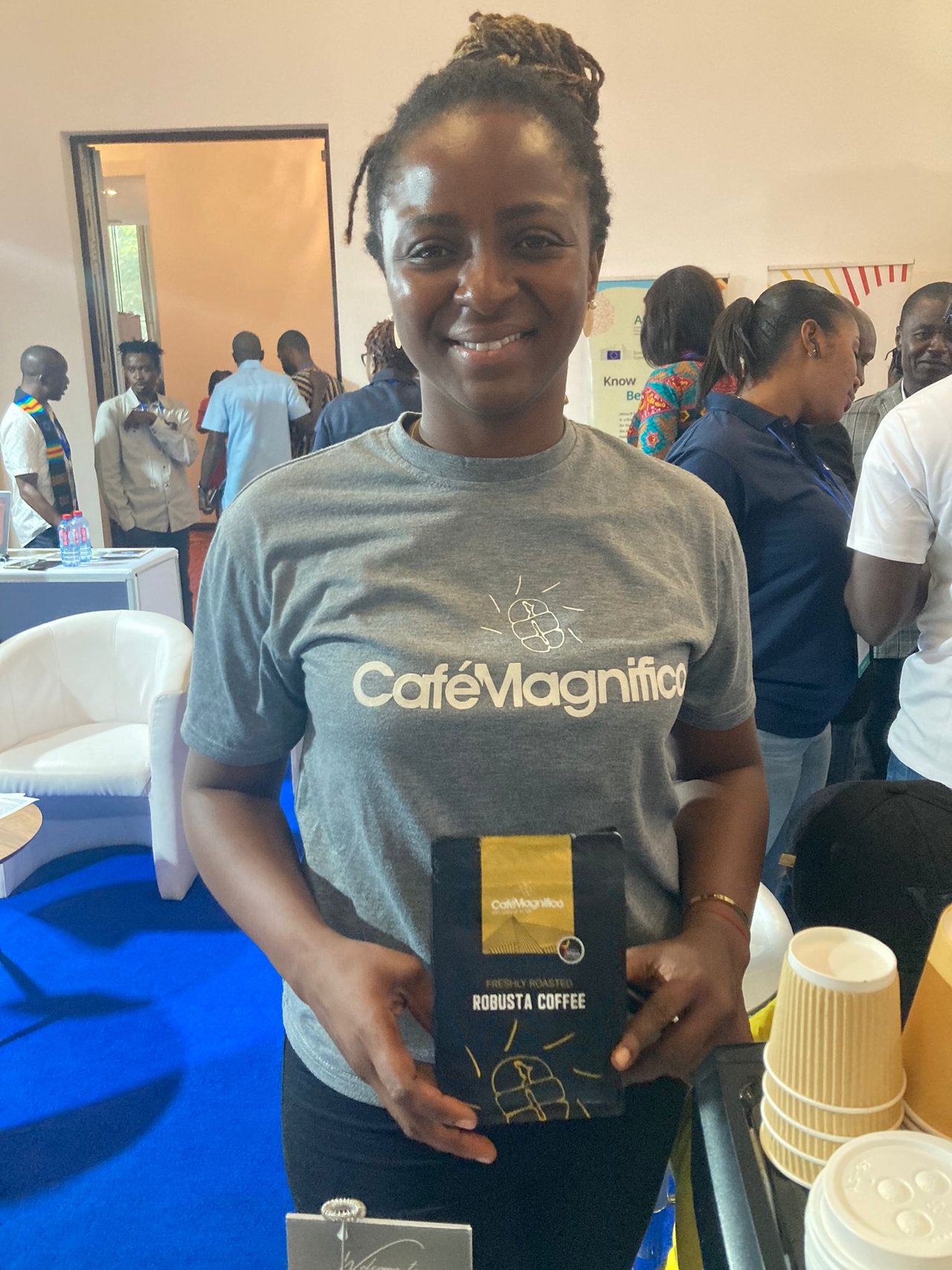
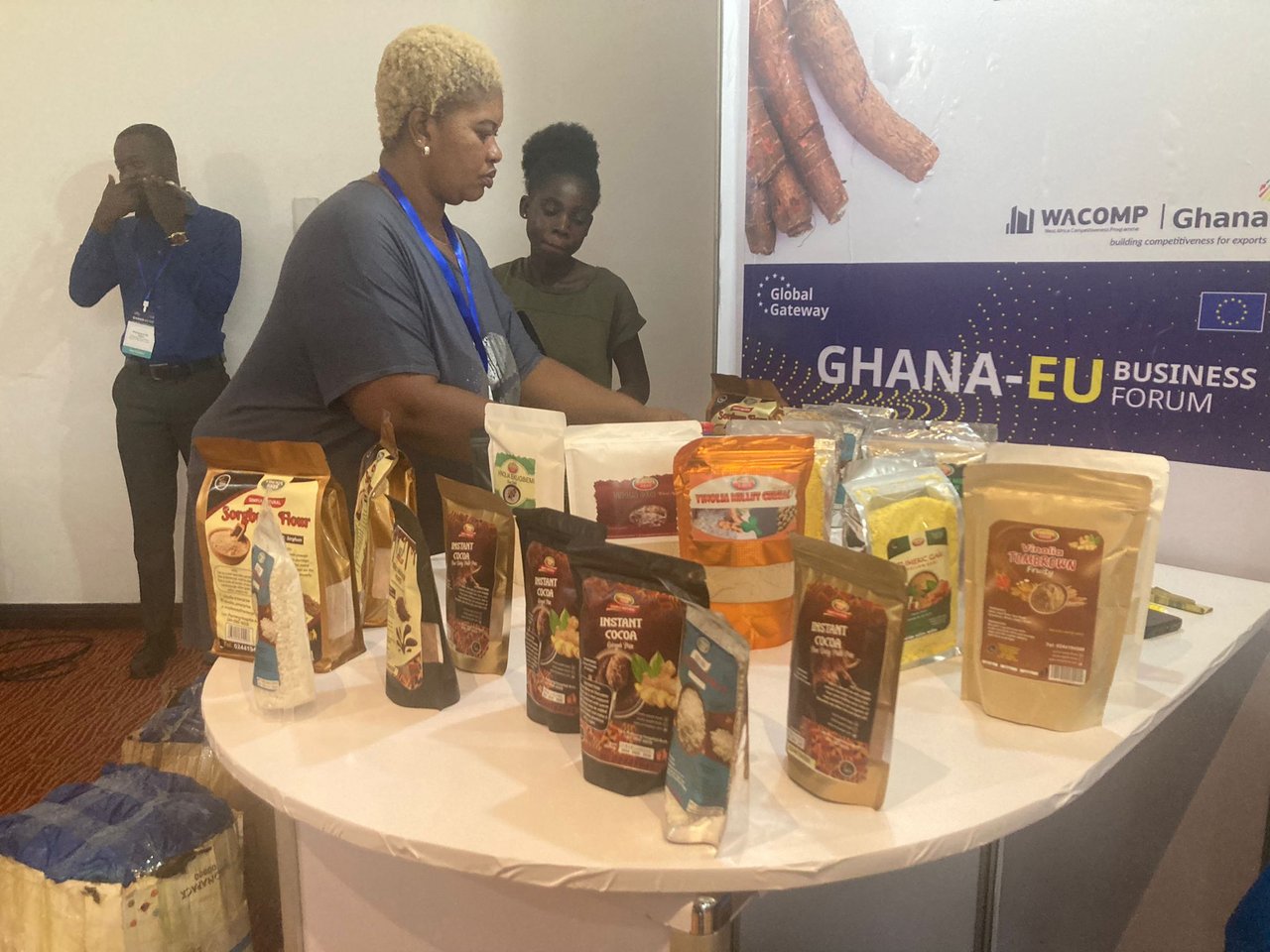
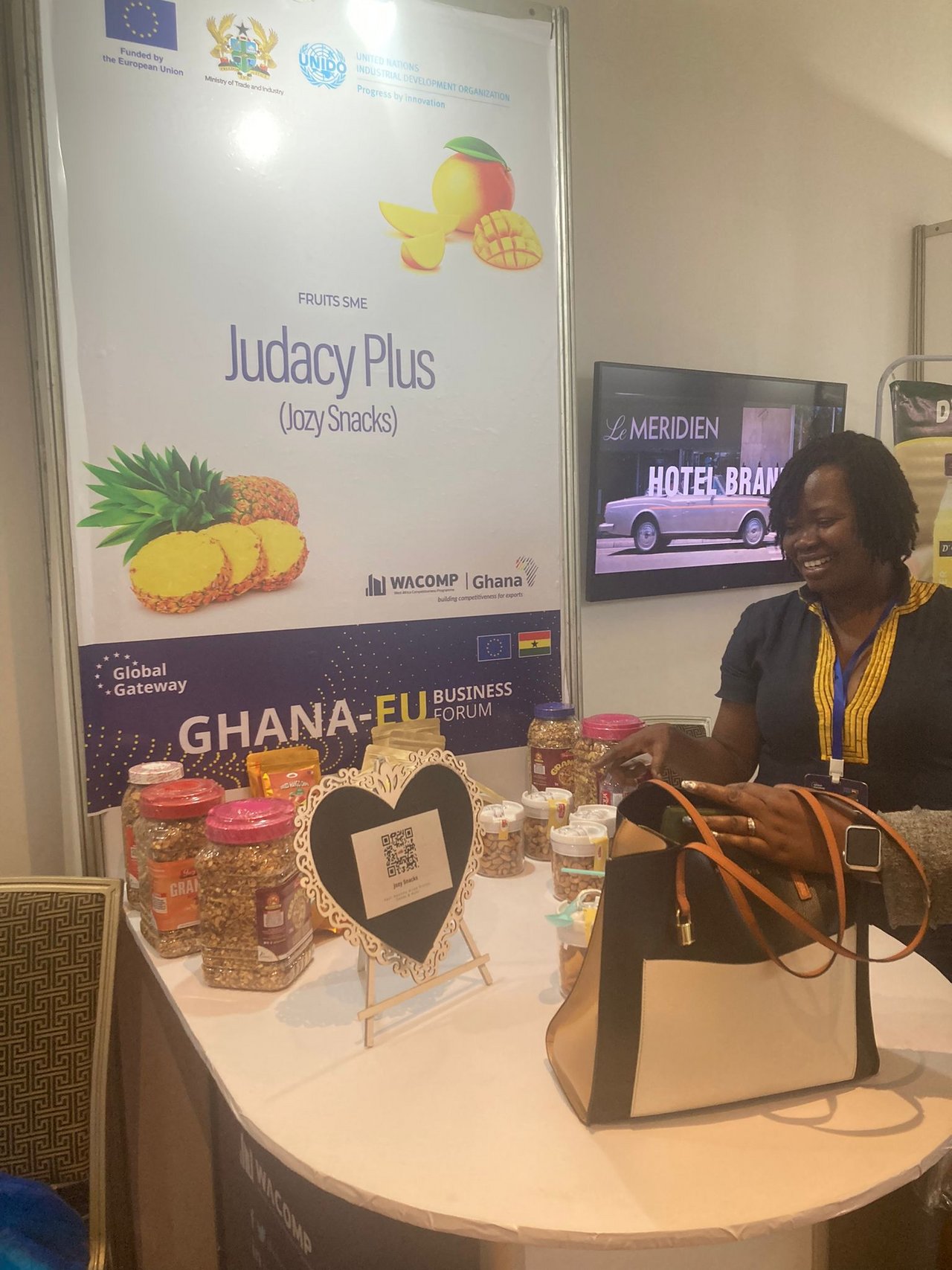
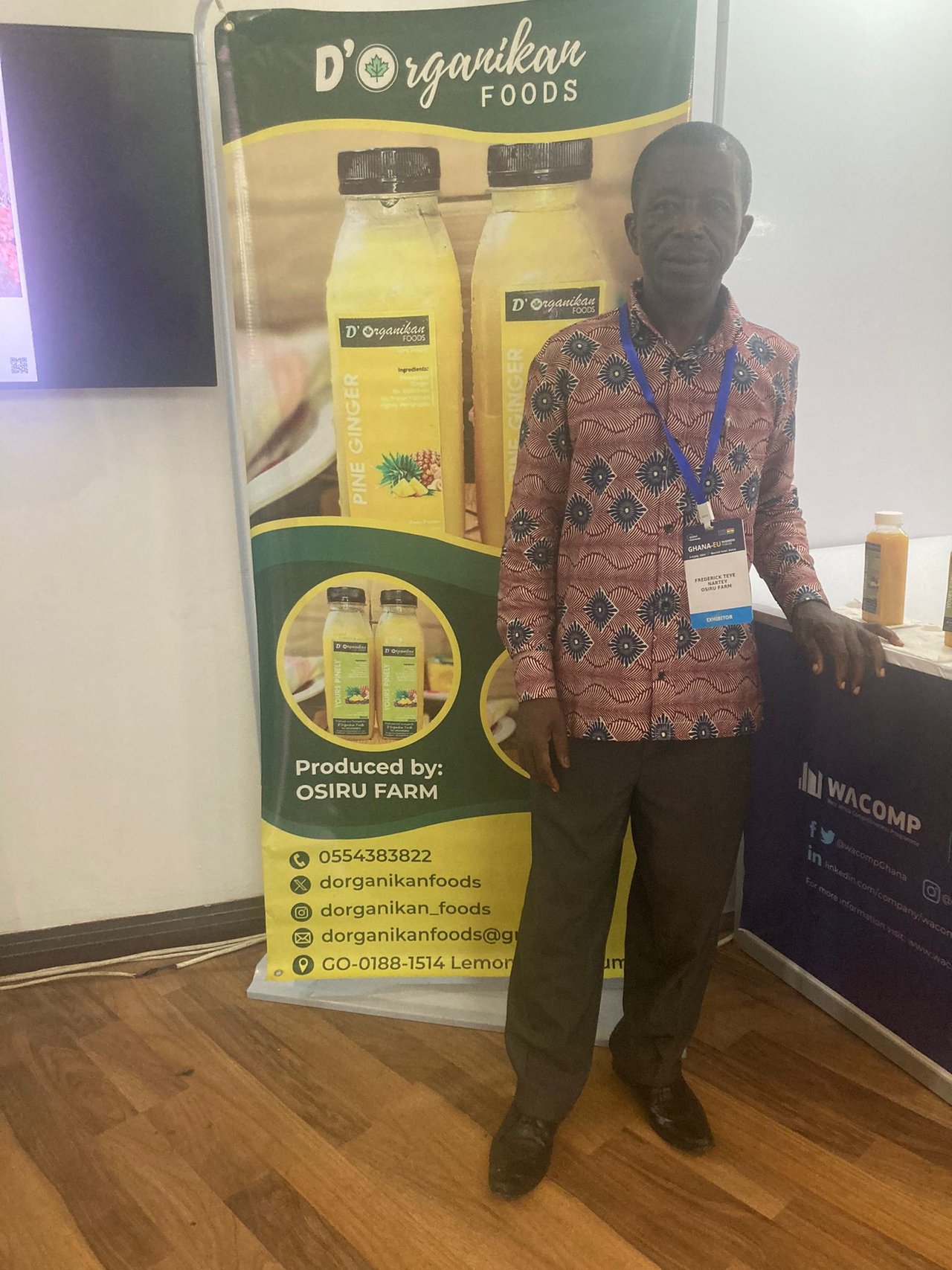
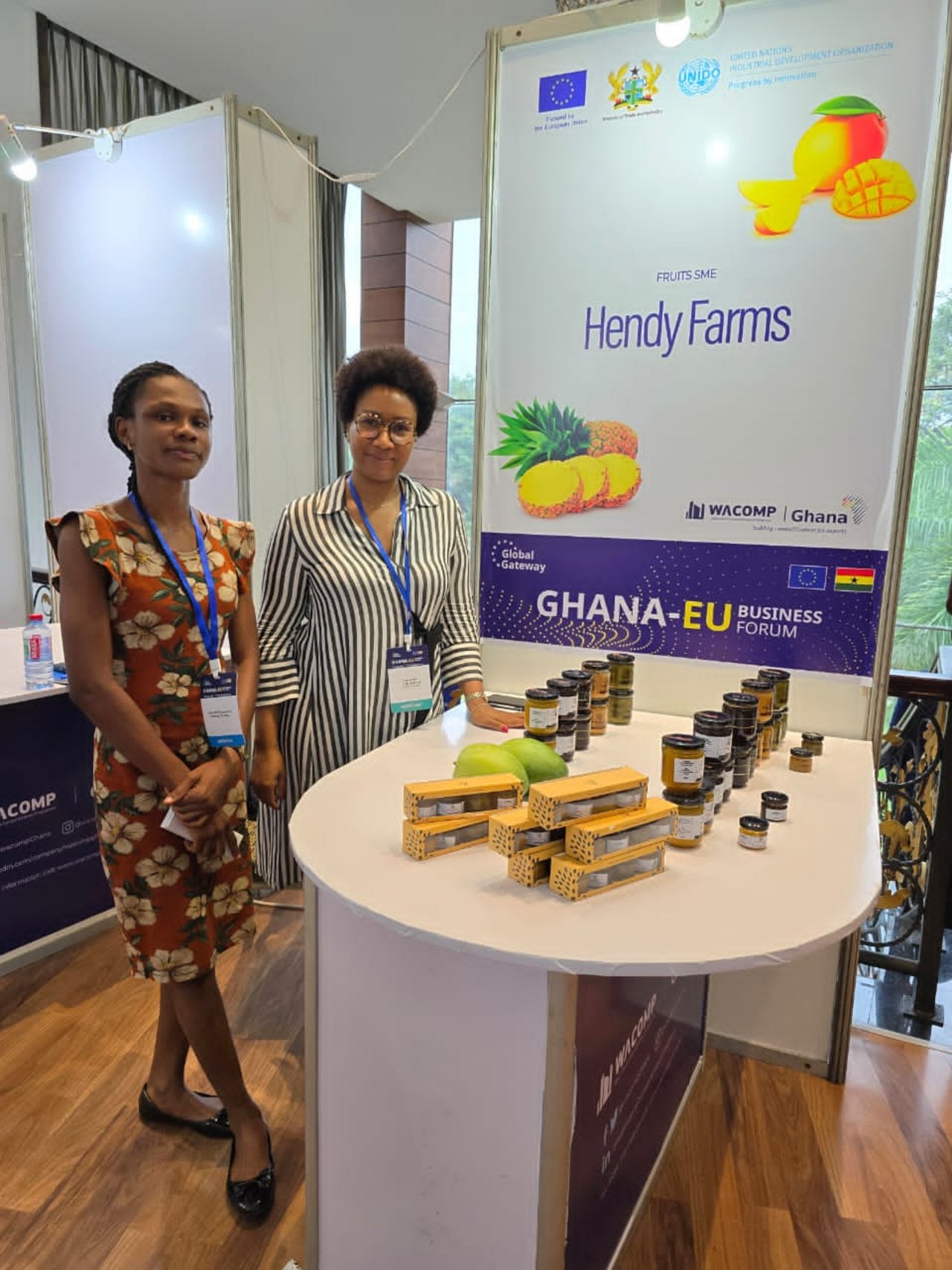
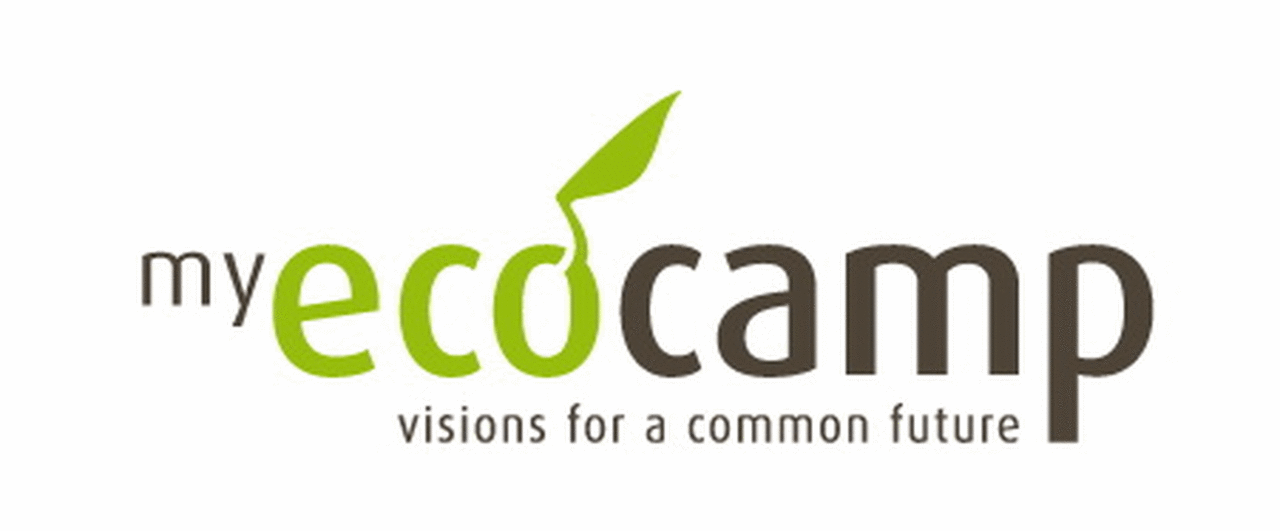
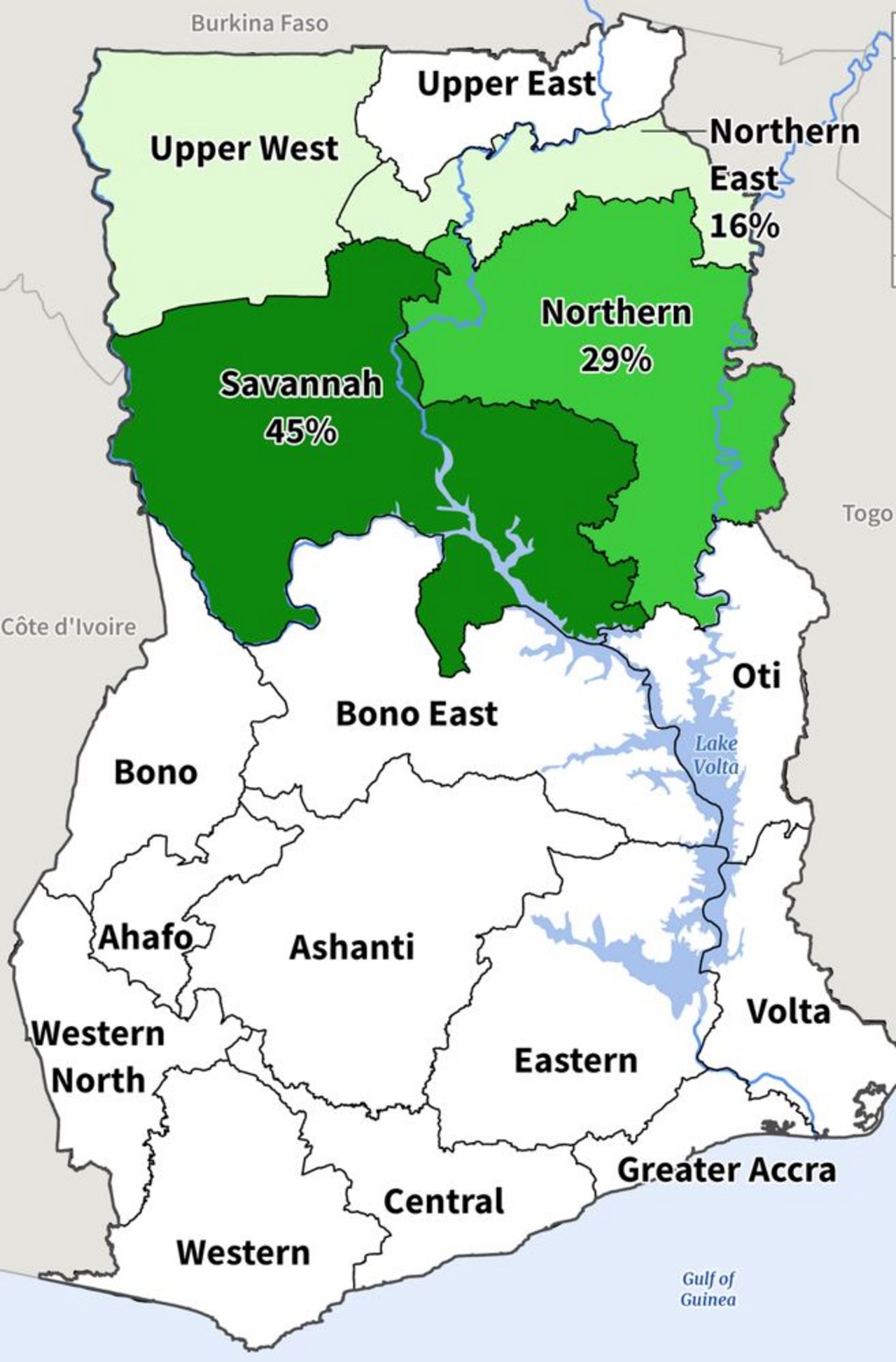
MADE IN GHANA
Unser Verein Learning From Cultures e.V. hat die Vision, junge Menschen dabei zu unterstützen, ihre Talente zu entdecken
Mit my-ecocamp Ghana haben wir ein Konzept entwickelt, bei dem Schülerinnen und Schüler von Schulen in Ghana eine Spielwiese finden, um ihre Talente zu entdecken und Berufe im ganzheitlichen Bereich der Nachhaltigkeit kennenzulernen, die zu einem Game Changer in ihrem Leben werden. Sie lernen den Umgang mit einfachen Werkzeugen bei der Arbeit mit Bambus, Lehm, Holz. Sowie einen Einblick in Industrie 4.0 mit dem Einsatz von Robotiks zu erhalten.
Vorbild für Ghanaer
Hilfe zur Selbsthilfe
Deshalb unterstützen wir auch junge Unternehmer, die ein Vorbild für die Menschen in Ghana sind.
Soziale Verantwortung von Unternehmen
CSR bezeichnet die Verantwortung eines Unternehmens für seinen Einfluss auf die Gesellschaft im Sinne eines nachhaltigen Managements. Dazu gehören soziale, ökologische und ökonomische Aspekte, wie sie beispielsweise in den international anerkannten Referenzdokumenten zur CSR dargelegt sind, vor allem in der grundlegenden Erklärung der INTERNATIONALEN ARBEITSORGANISATION ILO über multinationale Unternehmen und Sozialpolitik, den OECD-Leitsätzen für multinationale Unternehmen, den UN-Leitprinzipien für Wirtschaft und Menschenrechte, dem UN Global Compact und ISO 26000.
Konkret geht es bei CSR zum Beispiel um faire Geschäftspraktiken, mitarbeiterorientiertes Personalmanagement, sparsamen Umgang mit natürlichen Ressourcen, Klima- und Umweltschutz, aufrichtiges Engagement für die lokale Gemeinschaft und auch Verantwortung entlang der globalen Lieferkette.
In einer globalen Wirtschaft brauchen wir globale Strategien, die Nachhaltigkeit und unternehmerische Verantwortung fördern. Dazu gehören eine Nachhaltigkeitsstrategie und die oben erwähnten Umwelt-, aber auch Sozial- und Governance-Ziele.
Diese Ziele werden unter dem Begriff ESG zusammengefasst, der oft auch als Synonym für CSR verwendet wird.
ESG zielt zum Beispiel auf die Beseitigung von Hunger und Armut, auf Gesundheitsfürsorge, menschenwürdige Arbeitsbedingungen, Klimaschutz, Gleichstellung der Geschlechter und nachhaltigen Konsum.
ERNÄHRUNG
Die Ernährung wird in der heutigen, von Sars-Cov-2 und dem Klimawandel gezeichneten Welt immer mehr zum wichtigsten Faktor für die Gesundheit. Unbedenkliche Lebensmittel erhalten das Leben, während Verunreinigungen den Wert von Lebensmitteln zunichte machen und zu Tod und kurz- bis langfristiger Morbidität führen können.
RISIKEN DER LEBENSMITTELSICHERHEIT
Die häufigsten Risiken für die Lebensmittelsicherheit, die für die öffentliche Gesundheit von Belang sind, sind: i) Mikroorganismen (E. coli/Fäkalcoliforme, Staphylococcus aureus, Salmonella spp, Bacillus cereus und Virushepatitis); ii) Arzneimittel (Amoxicillin, Chlortetracyclin, Ciprofloxacin, Danofloxacin und Doxycyclin) und iii) Chemikalien (Chlorpyrifos).
Salat, Gemüse, Mangoscheiben, Fleischpastete und Schnecken-Khebab stellen ein hohes Risiko für die öffentliche Gesundheit dar.
Hochgradig kontaminierte Lebensmittel führen zu Todesfällen, kurz- bis langfristiger Morbidität, wirtschaftlichen Verlusten und drohen, Ghanas Bemühungen um die Erreichung der Ziele für nachhaltige Entwicklung (SDG) zunichte zu machen.
HACCP
Das HACCP-Konzept (Hazard Analysis and Critical Control Points) ist ein systematischer präventiver Ansatz für die Lebensmittelsicherheit in Bezug auf biologische, chemische und physikalische Gefahren in Produktionsprozessen, die zu einer Gefährdung des Endprodukts führen können, und sieht Maßnahmen zur Reduzierung dieser Risiken auf ein sicheres Niveau vor.
Das HACCP-Konzept konzentriert sich nur auf die gesundheitliche Unbedenklichkeit eines Produkts und nicht auf dessen Qualität. Dennoch bilden die HACCP-Grundsätze die Grundlage der meisten Systeme zur Gewährleistung der Lebensmittelqualität und -sicherheit.
ÖKOLOGISCHER LANDBAU
Der ökologische Landbau, auch als ökologische oder biologische Landwirtschaft bezeichnet, ist ein landwirtschaftliches System, das Düngemittel organischen Ursprungs wie Kompost, Gründünger und Knochenmehl verwendet und auf Techniken wie Fruchtfolge und Mischkulturen setzt.
Sie entstand Anfang des 20. Jahrhunderts als Reaktion auf die sich rasch verändernden landwirtschaftlichen Praktiken. Der zertifizierte ökologische Landbau umfasst weltweit 70 Millionen Hektar (170 Millionen Acres), davon mehr als die Hälfte in Australien.
Biologische Schädlingsbekämpfung, Mischkulturen und die Förderung von Raubinsekten werden gefördert. Die Bio-Standards sind so konzipiert, dass sie die Verwendung natürlich vorkommender Stoffe zulassen und synthetische Stoffe verbieten oder streng begrenzen. So sind beispielsweise natürlich vorkommende Pestizide wie Pyrethrin erlaubt, während synthetische Düngemittel und Pestizide generell verboten sind. Zu den erlaubten synthetischen Stoffen gehören zum Beispiel Kupfersulfat, elementarer Schwefel und Tierarzneimittel. Verboten sind gentechnisch veränderte Organismen, Nanomaterialien, menschlicher Klärschlamm, Pflanzenwachstumsregulatoren, Hormone und der Einsatz von Antibiotika in der Viehzucht.
ÖKOLOGISCHE LEBENSMITTEL
Kaffeebohnen
Ghana ist ein afrikanisches Land, das sich auf die Herstellung von Kaffee in kleinen Mengen spezialisiert hat, der aus den Pflanzen gewonnen wird, die dort natürlich wachsen. Die Robusta-Kaffeepflanze ist eine in Westafrika heimische Kaffeepflanze und gedeiht in den niedrigen Lagen des Landes. Diese Kaffeepflanze bringt Bohnen hervor, die typischerweise für Espresso und Instantkaffee verwendet werden.
Die Regionen Ashtani, East, Central und West Volta, Brong und Ahafo sind die Hauptkaffeeregionen Ghanas und liegen auf einer Höhe von etwa 400-700 Metern. Dies steht in krassem Gegensatz zu den streng hoch gewachsenen Arabica-Bohnen, die in einer Höhe von etwa 1.200 bis 1.400 Metern über dem Meeresspiegel angebaut und geerntet werden.
Anbau und Ernte
Im Gegensatz zu den hochgezüchteten Arabica-Bohnen gedeihen Robusta-Bohnen am besten in niedrigeren Lagen und können auch bei tropischem Wetter gut gedeihen. Die in Westafrika beheimateten Robusta-Pflanzen werden in der Regel in kleinen Betrieben angebaut. Diese kleinen Farmen produzieren etwa 100.000-300.000 grüne Kaffeebohnen pro Ernte, die in der Regel im September stattfindet.
Ghana produziert jährlich etwa 4 Millionen Pfund Kaffee und belegt damit Platz 42 auf der Liste der wichtigsten Kaffeeproduktionsländer. Der Kaffeeanbau und die Kaffeeproduktion sind ein hart umkämpfter Markt, aber sie konkurrieren nicht unbedingt mit ihnen.
Art der Kaffeebohne und Röstung
Der handwerklich hergestellte Kaffee aus Ghana wird immer beliebter, vor allem bei Espresso-Röstmischungen. Die Kaffeebauern beginnen jetzt mit der Herstellung von Robusta-Arabica-Hybridkaffeebohnen, die ein neues Niveau des Kaffeegeschmacks schaffen.
Wenn Sie jedoch 100%igen Robusta-Bohnenkaffee aus Ghana probieren möchten, empfehlen wir Ihnen zunächst eine Espresso-Röstung. Obwohl dies die Standardröstung für Robusta-Bohnen ist, kann es nicht schaden, auch andere Röstungen zu probieren.
Da ghanaischer Kaffee als Nischenprodukt immer noch an Beliebtheit gewinnt, ist es schwer zu sagen, wie man ihn am besten aufbrüht. Wir empfehlen, die beiden Methoden für ghanaischen Kaffee auszuprobieren, obwohl auch andere Zubereitungsmethoden funktionieren können.
Espresso
Robusta-Bohnen werden in der Regel für Espresso angebaut und verkauft. Daher ist es nicht verwunderlich, dass die Zubereitung von Ghana-Kaffee als Espresso wahrscheinlich die beste Methode ist. Espresso kann mit der richtigen Ausrüstung auch zu Hause zubereitet werden, so dass Sie jedes Coffee-Shop-Getränk mit erstklassigen Kaffeebohnen zubereiten können.
Kalt gebrüht
Im Zweifelsfall sollten Sie eine Charge Cold Brew-Kaffee zubereiten. Aus vielen Kaffeebohnen und Röstungen lässt sich köstlicher kalt gebrühter Kaffee herstellen. Dabei kann sogar die Bitterkeit der Robusta-Bohne gemildert werden, so dass die Aromen besser zur Geltung kommen, die durch die Bitterkeit überdeckt wurden.
GESCHICHTE
Erst im 18. Jahrhundert wurde mit dem Kaffeeanbau begonnen.
In den 1980er Jahren hatte die Regierung Plantagen angelegt, um die Kaffeeproduktion zu steigern. Als der Kaffeepreis jedoch zur gleichen Zeit einbrach, gaben die Bauern den Anbau auf.
Schließlich wurde das Plantagenland aufgeteilt und ging in Privatbesitz über, wobei einige Betriebe immer noch Kaffee anbauen. Die Gesamtproduktion ist erst in jüngster Zeit stark angestiegen, und Spezialitätenkaffee ist in der Kaffeewelt ein begehrtes Gut.
Café Magnifico Café Produkte Ivy Wereh
+233208780888
FRÜCHTE
Jozy Snacks Trockenfrüchte Cerealien Josephine Oduro Boateng
Spintexroad (hinter Manet Gardens)
jozysnacks.worldpress.com
+233243937996
Hendy Farms Marmelade Konfitüre Sandra Snowden
www.hendyfarmsgh.com
+233500554130
OSIRU FARM Frederick Teye
D'Organikan FOODS Ananas-Weinkellerei
dorganikanfoods@gmail.com
Insta @dorganikan_foods
0554383822
SAVANNAH FLAVOR NATURAL & ORGANIC FOODS
Kokosmehl frei von Gluten
Kokosnuss-Chips
ADD: GE 289-5217 Taifa, Accra
026 426 7401
0558799630
RAANAN FISCHFUTTER WEST AFRIKA LTD. Jacques Magnee
Prampram Dawhenya Straße
P.M.B. 146 GPO Accra-Central
+233 241435600
Jacques@raananfishfeed-wa.com
BIO-GESUNDHEITSPRODUKTE
SCHÖNHEITS- UND HAUTPFLEGEPRODUKTE
Nachhaltige Shea-Lösungen Victoria Afua Agbai
4, Paradise Street, Asylum Down
www.bubuneafrica.com
Victoria@bubuneafrica.com
+233 241881193
Seele & Schönheit von Faith
Ruth Brako
Faith Buchhandlung, St. James, Osu
0201166650
0558336612
soulandbeautybyfaith@gmali.com
IG @soulandbeautybyfaith
Sheabutter-Kosmetik
Perlen-Schmuck
Zubehör
Komfort Akorfa Adjahoe-Jennings
+233 244152263
+233 264152263
+233 249 440 791
eleagbe.sheashop@gmail.com
FTGN ist eine mitgliederbasierte Organisation, die sich für eine nachhaltige Landwirtschaft und handwerkliche Produktion im Umfeld des fairen Handels in Ghana einsetzt.
Es handelt sich um ein nationales Netzwerk von Fair-Trade-zertifizierten Bauern und Bäuerinnen, Handwerkern und Handwerkerinnen und Organisationen, die Arbeitskräfte beschäftigen. Das Netzwerk konzentriert sich auf Programme in den folgenden Bereichen, die seinen Mitgliedern zugute kommen:
Kapazitätsaufbau
FTGN versucht, die Kapazitäten seiner Mitglieder in den Bereichen Unternehmertum, Entwicklung von Geschäftsmodellen, Marketing, Technologie, ökologischer Landbau, Klimawandel usw. auszubauen. Dies geschieht durch Schulungen, Seminare und Workshops, die zu einer allmählichen, positiven und nachhaltigen Veränderung der Geschäftstätigkeit und des Lebensunterhalts der Mitglieder sowie des fairen Handels im Allgemeinen führen sollen.
Politik und Advocacy
FTGN engagiert sich in der von den Erzeugern betriebenen Politikformulierung und in der Lobbyarbeit, um die Stimme der Erzeuger in Fragen, die ihre Aktivitäten und ihren fairen Handel betreffen, zu stärken. Die Mitglieder werden von Schulungen zur Interessenvertretung profitieren, um ihre Fähigkeiten in diesem Bereich zu entwickeln und auszubauen, damit sie Einfluss auf die Politik und die Herausforderungen in ihren verschiedenen Sektoren nehmen können.
Partnerschaften
Das Netzwerk ist bestrebt, strategische Partnerschaften, Zugehörigkeiten und Allianzen mit internationalen und nationalen Institutionen zu entwickeln, um die Ziele der Organisationen zu unterstützen und seine Ziele zu erreichen.
Marktentwicklung und -zugang
FTGN ist bestrebt, gemeinsam mit anderen relevanten Akteuren eine Strategie zu entwickeln, um den Handel mit Fair-Trade-zertifizierten Produkten in Ghana aufzunehmen. Das Netzwerk geht davon aus, dass dadurch der Marktzugang für seine Mitglieder vor Ort geschaffen wird.
Fog Avenue, Westland Boulevard - gegenüber der Shell-Tankstelle an der West Legon Road
Ghanaische Post GPS - GA5525421
Kontakt-Nr.
059 545 3005
info@FairTradeGhanaNetwork.org
https://www.fairtradeghananetwork.org/
Our association Learning From Cultures e.V. has the vision to support young people to discover their talents.
With my-ecocamp Ghana we have developed a concept where pupils from schools in Ghana will find a playground to discover their talents and learn about professions in the holistic area of sustainability which will become a game changer in their life. Learning to use simple tools when working with bamboo, cley, wood. But also getting an idea of the use of robotics.
Role model for Ghanians
Help for self-help
Therefore we also support young entrepreneurs being a role model for Ghanians.
Corporate Social Responsibility
CSR refers to a company's responsibility for its impact on society in the sense of sustainable management. This includes social, environmental and economic aspects, as for example outlined in the internationally recognised reference documents on CSR.Chief among them the fundamental INTERNATIONAL LABOUR ORGANISATION ILO declaration on multinational enterprises and social policy, the OECD Guidelines for Multinational enterprises, the UN Guiding Principles on Business and Human Rights, the UN Global Compact and ISO 26000.
More specifically, CSR for example involves fair business practices, staff-oriented human resource management, economical use of natural resources, protection of the climate and environment, sincere commitment to the local community and also responsibility along the global supply chain.
In a global economy we need global strategies which foster sustainability and corporate responsibility. This includes a sustainability strategy and environmental but also social and governance goal as mentioned above.
These goals are collectively known as ESG, which is often also used as a synonym for CSR.
ESG aims, for example, at eliminating hunger and poverty, at health care, decent working conditions, climate action, gender equality and sustainable consumption.
NUTRITION
Nutrition is sturdily and rapidly becoming the foremost determinant of health in today’s Sars-Cov-2 and climate change ravaged world. While safe food sustains life, contamination obliterates its values and could result in death and short to long term morbidity.
FOOD SAFETY RISKS
The most common food safety risks of public health concern are: i) micro-organisms (E. coli/faecal coliforms, Staphylococcus aureus, Salmonella spp, Bacillus cereus, and Viral hepatitis); ii) drugs (Amoxicillin, Chlortetracycline, Ciprofloxacin, Danofloxacin, and Doxycycline) and; iii) chemicals (Chlorpyrifos).
Salad, vegetables, sliced mango, meat pie, and snail khebab are of high public health risks.
Highly contaminated food results in death, short to long term morbidity, economic loss, and threatens to displace Ghana’s efforts at achieving the Sustainable Development Goals (SDG)
HACCP
Hazard analysis and critical control points, or HACCP is a systematic preventive approach to food safety from biological, chemical, and physical hazards in production processes that can cause the finished product to be unsafe and designs measures to reduce these risks to a safe level.
HACCP is focused only on the health safety issues of a product and not the quality of the product, yet HACCP principles are the basis of most food quality and safety assurance systems.
ORGANIC FARMING
Organic farming, also known as ecological farming or biological farming is an agricultural system that uses fertilizers of organic origin such as compost manure, green manure, and bone meal and places emphasis on techniques such as crop rotation and companion planting.
It originated early in the 20th century in reaction to rapidly changing farming practices. Certified organic agriculture accounts for 70 million hectares (170 million acres) globally, with over half of that total in Australia.
Biological pest control, mixed cropping, and the fostering of insect predators are encouraged. Organic standards are designed to allow the use of naturally-occurring substances while prohibiting or strictly limiting synthetic substances.For instance, naturally-occurring pesticides such as pyrethrin are permitted, while synthetic fertilizer and pesticides are generally prohibited. Synthetic substances that are allowed include, for example, copper sulfate, elemental sulfur, and veterinary drugs. Genetically modified organisms, nanomaterials, human sewage sludge, plant growth regulators, hormones, and antibiotic use in livestock husbandry are prohibited.
ORGANIC FOOD
Coffee Beans
Ghana is a country in Africa specializing in small-batch coffee, which comes from the plants that naturally grow there. The Robusta coffee plant is an indigenous coffee plant in West Africa and flourish in the low elevations of the country. A coffee plant that grows beans typically for espresso and instant coffee.
The regions of Ashtani, East, Central, and West Volta, Brong, and Ahafo are the main coffee regions in Ghana, with an elevation of around 400–700 meters. This is in stark contrast to the Strictly High Grown beans from Arabica plants, which are farmed and harvested at around 1,200–1,400 meters above sea level.
Farming & Harvesting
Unlike the elevation-grown Arabica beans, Robusta beans do best at lower elevations and can flourish in tropical weather. The Robusta plants, native to West Africa, are typically grown on small-lot farms. These small farms produce around 100,000–300,000 green coffee beans per harvest, which typically occurs in September.
Ghana produces roughly 4 million pounds of coffee annually, earning 42nd place on the list of top coffee-producing countries. Coffee farming and producing is a highly competitive market, but they’re not necessarily competing with them.
Type of Coffee Bean & Roast
Ghanaian small-batch artisan coffee is growing in popularity, especially for espresso roast blends. Coffee farmers are now starting to create Robusta-Arabica hybrid coffee beans, creating a new level of coffee flavor.
Still, if you want to try 100% Robusta bean coffee from Ghana, we recommend trying an espresso roast to start. Although it’s the standard roast for Robusta beans, there’s no harm in trying other roasts.
Since Ghanaian coffee is still growing in popularity as a niche coffee product, it’s hard to tell what the best ways to brew it can be. We recommend trying the two methods for Ghana coffee, though other brewing methods could work as well.
Espresso
Robusta beans are usually grown and sold for espresso, so it’s not surprising that espresso-brewing Ghana coffee is probably the best method. Espresso brewing is possible at home with the right equipment, giving you the ability to make any coffee shop drink with top-notch quality coffee beans.
Cold Brew
When in doubt, make a batch of cold brew coffee. Many coffee beans and roasts can successfully make delicious cold brew coffee. It may even cut down on the bitterness of the Robusta bean, bringing out flavors that the bitterness could have covered.
HISTORY
It was not until the 18th century that coffee cultivation began.
During the 1980s, the government had set up plantations to help increase coffee production. However, farmers ditched the crop when the price of coffee crashed around the same time.
Eventually, the plantation land was split up for private ownership, with some farms still producing coffee. The overall production hasn’t increased much until very recently, with specialty coffee being a hot commodity in the coffee world.
Café Magnifico Café Products Ivy Wereh
+233208780888
FRUITS
Jozy Snacks Dried fruits Cereals Josephine Oduro Boateng
Spintexroad (behind Manet Gardens)
jozysnacks.worldpress.com
+233243937996
Hendy Farms Marmalade Jam Sandra Snowden, Emida Ferguson
+233500554130
OSIRU FARM Frederick Teye
D’Organikan FOODS Pineapple winery
Insta @dorganikan_foods
0554383822
SAVANNAH FLAVOR NATURAL & ORGANIC FOODS
Kasava Flour Free of Glutene
Coconut Chips
ADD: GE 289-5217 Taifa, Accra
026 426 7401
0558799630
RAANAN FISH FEED WEST AFRICA LTD. Jacques Magnee
Prampram Dawhenya Road
P.M.B. 146 GPO Accra-Central
+233 241435600
ORGANIC HEALTH PRODUCTS
BEAUTY AND SKIN CARE PRODUCTS
Bubune AFRICA
Sustainable Shea Solutions Victoria Afua Agbai
4, Paradise Street, Asylum Down
+233 241881193
Soul & Beauty by Faith
Ruth Brako
Faith Bookshop, St. James, Osu
0201166650
0558336612
soulandbeautybyfaith@gmali.com
IG @soulandbeautybyfaith
Shea Butter Cosmetics
Beads Jewellery
Accessoires
Comfort Akorfa Adjahoe-Jennings
+233 244152263
+233 264152263
+233 249 440 791
BIO GHANA NETWORK
Bio Ghana Network was established in 2010.
– Operational in 2012 Headed by coordinator Samuel Quarcoo.
– Network for companies and producers who are or want to be organically certified.
– The Network is under the Ecological Organic Agricultural Platform-Ghana (EOAP-G).
What they do
- establishing relationships with all organic producers and companies members: producers; processors; marketers in training in and quality assurance to collaborate with experienced stakeholders.
- Encourage members to be organically certified.
- Find market avenues for both local and international, export organic fresh and dried fruits, vegetables and peels, processed cocoa and its derivatives.
- Organize trips for international organic conferences and fairs (like Biofach).
- Connect to all internationally recognized organic establishments like IFOAM.
- Bring together all organic exporters/importers in Ghana, advocate interests of members and support companies to get certified looking for sponsors.
- Well coordinated activities and a single website to capture operations and information sharing.
- Harmonize funding and arrange inflows to support all companies involved in organic activities to reduce costs by doing things together.
- Revamping the sector with expertise.
FAIR TRADE GHANA NETWORK
FTGN is membership-based organization championing sustainable agriculture and handicraft production in the fair trade environment in Ghana.
It is a national network of fair trade certifed farmers, handicraft producers and hired labour organisations. The network focuses on programmes in the following areas for the benefit of its members:
Capacity Building
FTGN seeks to build the capacity of its members in entrepreneurship, development of business models, marketing, technology, organic farming, climate change etc. These will be facilitated through training courses, seminars and workshops leading to the gradual, positive and sustainable transformation to member’s operations and livelihood and fair trade in general.
Policy and Advocacy
FTGN engages in producer driven policy formulation and advocacy actions to amplify the producers’ voice on issues affecting their activities and trading fairly. Members will benefit from advocacy trainings to develop and build on their skills in this area to enable them influence policies and challenges in their various sectors.
Partnerships
The network seeks to develop strategic partnerships, affiliations and alliances with both international and national institutions to support the objectives of the organisations in order to achieve its goals.
Market development and access
FTGN seeks to engage in the development of a strategy together with other relevant stakeholders to begin trading in fair trade certified products in Ghana. It is the network’s expectation that this will create market access locally for its members.
Fog Avenue, Westland Boulevard – Opposite Shell Filling station on the West Legon Road
Ghana Post GPS - GA5525421
Contact No.
059 545 3005
info@FairTradeGhanaNetwork.org
https://www.fairtradeghananetwork.org/